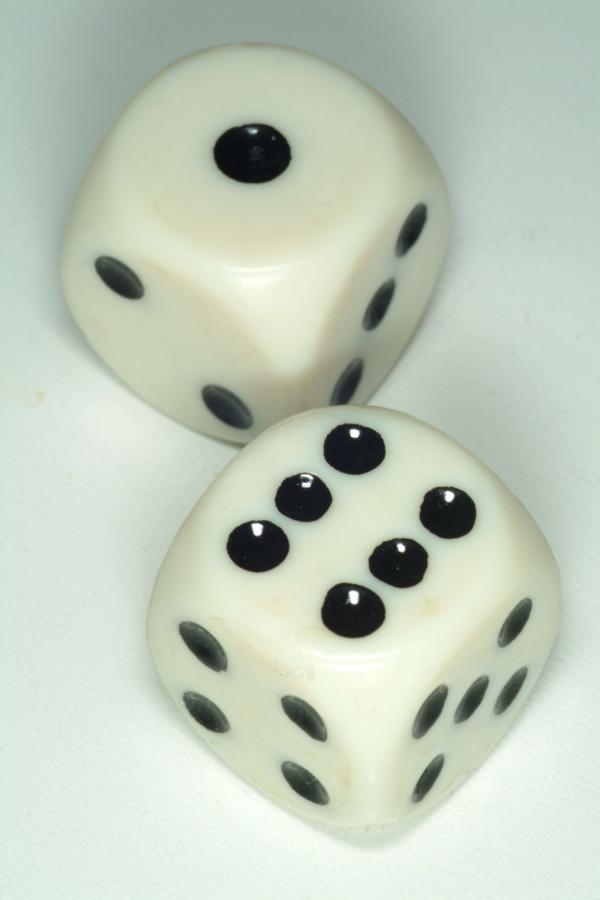
It doesn’t mean that you just give up but sometimes you have taken the data as far as you can go and you just don’t know. In those cases the best idea is probably to use probability and random chance. I felt foolish saying this at our leadership seminar and I know that advocating a throw of the dice amounts to apostasy among most decision makers, but it makes sense when the information available provides no reason to come down on either side.
I have thought about randomness in decisions for some time and did some reading on the subject. I even made up an Amazon list of titles that I read. My position is easily caricatured. I know that. What comes to mind is monkeys throwing darts or sequential games of rock-paper-scissors to decide really important issues. But think about it for a more than a minute. If you really have no basis for a particular choice, using randomness is the most efficient way to get past the dilemma and the only way to guard against systemic unconscious bias. Why pretend to have more wisdom than you have?
Our leadership seminar produced a good example. We broke into four groups each with the goal of choosing a fictional DCM for a fictional country. We were given a situational analysis and brief bio/descriptions of five candidates. The exercise was meant to let us practice negotiation and communication but the results were interesting for a different reason. All of us are reasonably intelligent and successful people. We all actually have participated on similar selection committees in real life. We took the exercise seriously and spent forty-five minutes each discussing the issue. There were five candidates and four groups of us trying to decide. Despite all our expertise and experience, none of the groups chose the same winner. Beyond that, the one candidate that my groups eliminated first as the lowest performer was the top candidate for one of our colleagues’ groups. Who was right? Who knows? I don’t want to read too much into this lesson, but the results of all our serious deliberations were no better than random chance and could have been produced by a random process in seconds. So what can we do?
Using randomness to break a tie or resolve a situation with no firm direction from the data is not the same as being disorganized or relying on chance in all situations. Having a diverse portfolio of skills, stocks etc. is a way of acknowledging randomness. If you were dealing with certainty, you would just put all your eggs in the one BEST basket. A smart decision maker sets up his/her affairs to take advantage of probabilities. You diversify because of randomness. We all know that any hard decision is made in a climate of uncertainty and randomness will affect us in unpredictable ways. Underneath all the planning, analysis and carefully crunched numbers lurks a random wildness we just cannot figure in. The recent financial meltdown is a good example.
I have my own example and a suggestion. Good universities have more qualified applicants than places in their classes. A qualified person is one who can do the work. You don’t want mere qualification; you want to get the best qualified, but how can you do that? You can assess their academic records and test scores to determine basic qualifications. Many schools spend lots of money and time trying to go beyond that to find out the total person. This is something they really cannot do. There is not enough information available on the eighteen year old applicants to assess the total person. Most kids this age have not finished developing into the “whole person” they will soon become and none of them have had enough time to create the kind of track record you would need to make an informed choice. I advocate a threshold requirement to determine whether or not the application could do the work. After that, I think we should go with random chance. It is not a wonderful solution, but it is the best we can do. Random chance has the auxiliary benefit being unbiased. It doesn’t and cannot discriminate on the basis of race, gender, creed, color or national origin.
Most students apply to several universities. It is a crap-shoot for them anyway. If we did it my way, at least they could be assured that they were playing with honest dice.
It takes courage to admit what you don’t know and even more courage to recognize that there are some decisions that you cannot make as well as random chance. But if you know your limitations, you can extend your abilities.
